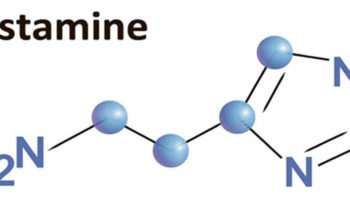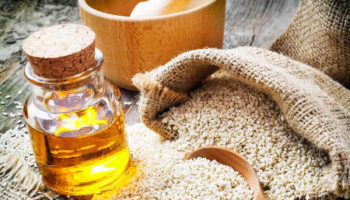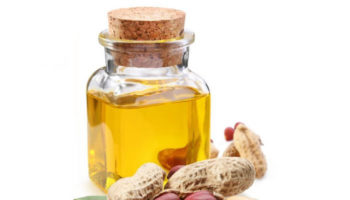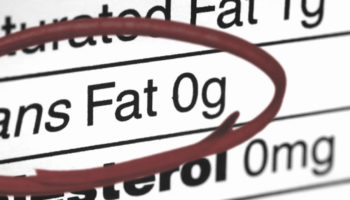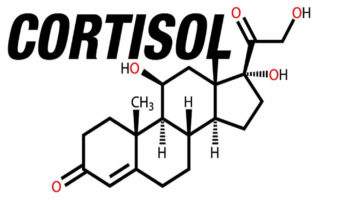
Contents
Is coconut water good for you ?
Coconut water, like coconut oil and coconut spread, in case you haven’t heard, is the new “craze” drink with health food stores and supermarkets stocking this beverage in their shelves. Coconut water is being promoted as “super hydrating” and marketed as both a sports drink and a casual beverage. So what is coconut water ? How nutritious is coconut ? Are there any health benefits of drinking coconut water ?
Is Coconut Water or Juice ?
Coconut water is not water with coconut flavor added. Coconut water is the clear liquid found inside immature coconuts. As the coconut matures, the water is replaced by coconut meat.
Coconut water is sometimes referred to as green coconut water because the immature coconuts are green in color.
Coconut water is different than coconut milk. Coconut milk is a milky white liquid extracted from mature coconut flesh, which is an emulsion of coconut water and fresh grated mature coconut. So coconut water is a type of juice, because juice is defined as the liquid obtained from or present in fruit or vegetables. Looking at Table 1 below, for 100 gram of “coconut water”, the water content is 95 gram and the calorie content is 19 calories. Coconut water has trace amount of minerals like calcium, magnesium, potassium and sodium. For comparison, we have added orange juice (see Table 2 below).
Coconut water is commonly used as a beverage and as a solution for treating dehydration related to diarrhea or exercise. It is also tried for high blood pressure.
However this study showed that there is great variability in coconut water composition during maturation of the fruit. In no instance did the coconut water contain sodium and glucose concentrations of potential value as an oral rehydration solution 1.
Compared to other juices, coconut water has similar or fewer carbohydrates and calories in an 8-ounce serving. However, coconut water has more potassium, sodium, magnesium and calcium than most juices.
Table 1. Coconut Water Nutrition Content
Nutrient | Unit | Value per 100 g | cup 240 g | tbsp 15 g | coconut yields 206 g | ||||||||||||||
|---|---|---|---|---|---|---|---|---|---|---|---|---|---|---|---|---|---|---|---|
| Approximates | |||||||||||||||||||
| Water | g | 94.99 | 227.98 | 14.25 | 195.68 | ||||||||||||||
| Energy | kcal | 19 | 46 | 3 | 39 | ||||||||||||||
| Protein | g | 0.72 | 1.73 | 0.11 | 1.48 | ||||||||||||||
| Total lipid (fat) | g | 0.20 | 0.48 | 0.03 | 0.41 | ||||||||||||||
| Carbohydrate, by difference | g | 3.71 | 8.90 | 0.56 | 7.64 | ||||||||||||||
| Fiber, total dietary | g | 1.1 | 2.6 | 0.2 | 2.3 | ||||||||||||||
| Sugars, total | g | 2.61 | 6.26 | 0.39 | 5.38 | ||||||||||||||
| Minerals | |||||||||||||||||||
| Calcium, Ca | mg | 24 | 58 | 4 | 49 | ||||||||||||||
| Iron, Fe | mg | 0.29 | 0.70 | 0.04 | 0.60 | ||||||||||||||
| Magnesium, Mg | mg | 25 | 60 | 4 | 52 | ||||||||||||||
| Phosphorus, P | mg | 20 | 48 | 3 | 41 | ||||||||||||||
| Potassium, K | mg | 250 | 600 | 38 | 515 | ||||||||||||||
| Sodium, Na | mg | 105 | 252 | 16 | 216 | ||||||||||||||
| Zinc, Zn | mg | 0.10 | 0.24 | 0.01 | 0.21 | ||||||||||||||
| Vitamins | |||||||||||||||||||
| Vitamin C, total ascorbic acid | mg | 2.4 | 5.8 | 0.4 | 4.9 | ||||||||||||||
| Thiamin | mg | 0.030 | 0.072 | 0.004 | 0.062 | ||||||||||||||
| Riboflavin | mg | 0.057 | 0.137 | 0.009 | 0.117 | ||||||||||||||
| Niacin | mg | 0.080 | 0.192 | 0.012 | 0.165 | ||||||||||||||
| Vitamin B-6 | mg | 0.032 | 0.077 | 0.005 | 0.066 | ||||||||||||||
| Folate, DFE | µg | 3 | 7 | 0 | 6 | ||||||||||||||
| Vitamin B-12 | µg | 0.00 | 0.00 | 0.00 | 0.00 | ||||||||||||||
| Vitamin A, RAE | µg | 0 | 0 | 0 | 0 | ||||||||||||||
| Vitamin A, IU | IU | 0 | 0 | 0 | 0 | ||||||||||||||
| Vitamin E (alpha-tocopherol) | mg | 0.00 | 0.00 | 0.00 | 0.00 | ||||||||||||||
| Vitamin D (D2 + D3) | µg | 0.0 | 0.0 | 0.0 | 0.0 | ||||||||||||||
| Vitamin D | IU | 0 | 0 | 0 | 0 | ||||||||||||||
| Vitamin K (phylloquinone) | µg | 0.0 | 0.0 | 0.0 | 0.0 | ||||||||||||||
| Lipids | |||||||||||||||||||
| Fatty acids, total saturated | g | 0.176 | 0.422 | 0.026 | 0.363 | ||||||||||||||
| Fatty acids, total monounsaturated | g | 0.008 | 0.019 | 0.001 | 0.016 | ||||||||||||||
| Fatty acids, total polyunsaturated | g | 0.002 | 0.005 | 0.000 | 0.004 | ||||||||||||||
| Cholesterol | mg | 0 | 0 | 0 | 0 | ||||||||||||||
| Other | |||||||||||||||||||
| Caffeine | mg | 0 | 0 | 0 | 0 | ||||||||||||||
Table 2. Orange Juice Nutrition Content
Nutrient | Unit | Value per 100 g | cup 248 g | fl oz 31 g | fruit yields 86 g | ||||||||||||||
|---|---|---|---|---|---|---|---|---|---|---|---|---|---|---|---|---|---|---|---|
| Approximates | |||||||||||||||||||
| Water | g | 88.30 | 218.98 | 27.37 | 75.94 | ||||||||||||||
| Energy | kcal | 45 | 112 | 14 | 39 | ||||||||||||||
| Protein | g | 0.70 | 1.74 | 0.22 | 0.60 | ||||||||||||||
| Total lipid (fat) | g | 0.20 | 0.50 | 0.06 | 0.17 | ||||||||||||||
| Carbohydrate, by difference | g | 10.40 | 25.79 | 3.22 | 8.94 | ||||||||||||||
| Fiber, total dietary | g | 0.2 | 0.5 | 0.1 | 0.2 | ||||||||||||||
| Sugars, total | g | 8.40 | 20.83 | 2.60 | 7.22 | ||||||||||||||
| Minerals | |||||||||||||||||||
| Calcium, Ca | mg | 11 | 27 | 3 | 9 | ||||||||||||||
| Iron, Fe | mg | 0.20 | 0.50 | 0.06 | 0.17 | ||||||||||||||
| Magnesium, Mg | mg | 11 | 27 | 3 | 9 | ||||||||||||||
| Phosphorus, P | mg | 17 | 42 | 5 | 15 | ||||||||||||||
| Potassium, K | mg | 200 | 496 | 62 | 172 | ||||||||||||||
| Sodium, Na | mg | 1 | 2 | 0 | 1 | ||||||||||||||
| Zinc, Zn | mg | 0.05 | 0.12 | 0.02 | 0.04 | ||||||||||||||
| Vitamins | |||||||||||||||||||
| Vitamin C, total ascorbic acid | mg | 50.0 | 124.0 | 15.5 | 43.0 | ||||||||||||||
| Thiamin | mg | 0.090 | 0.223 | 0.028 | 0.077 | ||||||||||||||
| Riboflavin | mg | 0.030 | 0.074 | 0.009 | 0.026 | ||||||||||||||
| Niacin | mg | 0.400 | 0.992 | 0.124 | 0.344 | ||||||||||||||
| Vitamin B-6 | mg | 0.040 | 0.099 | 0.012 | 0.034 | ||||||||||||||
| Folate, DFE | µg | 30 | 74 | 9 | 26 | ||||||||||||||
| Vitamin B-12 | µg | 0.00 | 0.00 | 0.00 | 0.00 | ||||||||||||||
| Vitamin A, RAE | µg | 10 | 25 | 3 | 9 | ||||||||||||||
| Vitamin A, IU | IU | 200 | 496 | 62 | 172 | ||||||||||||||
| Vitamin E (alpha-tocopherol) | mg | 0.04 | 0.10 | 0.01 | 0.03 | ||||||||||||||
| Vitamin D (D2 + D3) | µg | 0.0 | 0.0 | 0.0 | 0.0 | ||||||||||||||
| Vitamin D | IU | 0 | 0 | 0 | 0 | ||||||||||||||
| Vitamin K (phylloquinone) | µg | 0.1 | 0.2 | 0.0 | 0.1 | ||||||||||||||
| Lipids | |||||||||||||||||||
| Fatty acids, total saturated | g | 0.024 | 0.060 | 0.007 | 0.021 | ||||||||||||||
| Fatty acids, total monounsaturated | g | 0.036 | 0.089 | 0.011 | 0.031 | ||||||||||||||
| Fatty acids, total polyunsaturated | g | 0.040 | 0.099 | 0.012 | 0.034 | ||||||||||||||
| Fatty acids, total trans | g | 0.000 | 0.000 | 0.000 | 0.000 | ||||||||||||||
| Cholesterol | mg | 0 | 0 | 0 | 0 | ||||||||||||||
| Other | |||||||||||||||||||
| Caffeine | mg | 0 | 0 | 0 | 0 | ||||||||||||||
Is coconut water a good casual beverage ?
Possibly. Here are a few things to consider. Do you need the 45-60 calories an 8-ounce serving of coconut water provides ? If these calories put you over your daily calorie needs, you could easily gain 5-6 pounds in a year. If you aren’t active enough to burn off the extra calories, plain water is a better option.
On the other hand, if you compare unsweetened freshly squeezed orange juice to unflavored coconut water, coconut water has about a third of the sugar and about 50 percent less calories. Ounce for ounce, typical fruit juices have twice as many calories as unflavored coconut water.
One of coconut water’s claims to fame is its high potassium. Americans usually fall short of their daily requirement of potassium, mainly because they don’t eat enough whole fruits and vegetables. However, coconut water also contains sodium. Just how much depends on the brand. That might be a concern if you, like most Americans, already have too much sodium in your diet and have hypertension (high blood pressure).
Is coconut water a sports drink ?
Sport drinks are ubiquitous within the recreational and competitive fitness and sporting world. Most are manufactured and artificially flavored carbohydrate-electrolyte beverages. Recently, attention has been given to coconut water, as a natural alternative to manufactured sports drink.
Coconut water is popularly used for rehydration after physical activity or an illness such as diarrhea 3, 4.
It’s true that coconut water has natural electrolytes. Coconut water is rich in carbohydrates and electrolytes such as potassium, sodium, and magnesium. Because of this electrolyte composition, there is a lot of interest in using coconut water to treat and prevent dehydration. But some experts suggest that the electrolyte composition in coconut water is not adequate to be used as a rehydration solution 5.
In a small study involving 10 healthy male subjects to compare the effectiveness of plain water, sports drink, fresh young coconut water and sodium-enriched fresh young coconut water on whole body rehydration and plasma volume restoration after exercise-induced dehydration 6. The test subjects then ran up to their 65% of VO2max (the maximum or optimum rate at which the heart, lungs, and muscles can effectively use oxygen during exercise, used as a way of measuring a person’s individual aerobic capacity) in an environmental temperature of 32.06 degree Celsius with a relative humidity of 53.32 % for 90 minutes to lose 3% body weight 6. During the 2-hour rehydration period, subjects drank, in randomized order, plain water, sports drink, fresh young coconut water or sodium-enriched fresh young coconut water equivalent to 120% of body weight lost in three boluses representing 50, 40 and 30% of the fluid lost at 0, 30, and 60 minutes, respectively. In all trials subjects were still somewhat dehydrated even after the 2-hour rehydration period. Indexes of percent rehydration with plain water, sports drink, fresh young coconut water and sodium-enriched fresh young coconut water were 58 %, 68 %, 65 % and 69 %, respectively, with only significantly better rehydration with sports drink and sodium-enriched fresh young coconut water 6.
In another single blind (subject and not investigators) study comparing plain water, carbohydrate-electrolyte sports drink, pure coconut water and coconut water from concentrate 7. Following a 60-minute bout of dehydrating treadmill exercise, 12 exercise-trained men (27-32 yrs) received bottled plain water, pure coconut water, coconut water from concentrate or a carbohydrate-electrolyte sport drink on four occasions (separated by at least 5 days) in a random order, cross-over design. Hydration status (body mass, fluid retention, plasma osmolality, urine specific gravity) and performance (treadmill time to exhaustion; assessed after rehydration) were determined during the recovery period. Subjective measures of thirst, bloatedness, refreshed, stomach upset, and tiredness were also determined. Subjects lost approximately 1.7 kg (~2% of body mass) during the dehydrating treadmill exercise and regained this amount in a relatively similar manner following consumption of all conditions. No differences were noted between coconut water (pure coconut water or coconut water from concentrate) and carbohydrate-electrolyte sports drink for any measures of fluid retention. Regarding exercise performance, no significant difference was noted between plain water (11.9 ± 5.9 min), pure coconut water (12.3 ± 5.8 min), coconut water from concentrate (11.9 ± 6.0 min), and carbohydrate-electrolyte sports drink (12.8 ± 4.9 min). In general, subjects reported feeling more bloated and experienced greater stomach upset with the pure coconut water and coconut water from concentrate conditions 7. All tested beverages are capable of promoting rehydration and supporting subsequent exercise. Little difference is noted between the four tested conditions with regard to markers of hydration or exercise performance in a sample of young, healthy men 7. The researcher added that additional study inclusive of a more demanding dehydration protocol, as well as a time trial test as the measure of exercise performance, may more specifically determine the efficacy of these beverages on enhancing hydration and performance following dehydrating exercise.
In a new study comparing potassium-rich drinks to plain water, sports drink and potassium-added coconut water for postexercise rehydration 8. On 4 different days, 12 healthy, physically active volunteers (25-29 years old), were dehydrated to 2.10% body mass by exercising in an environmental chamber (32.0 °C, 53.8 ± 5.2% relative humidity). Each day they drank 1 of 4 beverages in random order: potassium-added fresh coconut water, bottled plain water, sports drink, or potassium-rich drink (NEW); volume was 120% of weight loss. Fluid retention was higher for sports drink than water, but not for potassium-added fresh coconut water and potassium-rich drink (NEW). Fluid retention, thirst quenching, tolerance, and palatability of different drinks were also assessed. All beverages were palatable and well tolerated; none maintained a positive net fluid balance after 3 h, but deficit was greater in water versus sports drink. Potassium-added fresh coconut water scored higher for sweetness. In conclusion, additional potassium in fresh coconut water and potassium-rich drink did not result in additional rehydration benefits over those already found in a conventional sports drink with sodium 8.
So going back to the question on whether coconut water can be used for sports drink ? The answer is probably not, at least not for serious athletes who undergo intensive exercise and training — like when you’re working hard and really sweating for longer than an hour. In that case, coconut water falls short in terms of carbohydrates and protein, according to sports nutrition standards. Both are essential to recovery and replenishing your muscles.
Health Benefits of Coconut Water
More evidence is needed to rate the effectiveness of coconut water for these uses. Note that for something to be effective or therapeutic, it must be based on scientific evidence ! Otherwise anyone and any business can just market and promote their products as a cure for all, even though they have no scientific data to prove what they say in their advertisements.
There is currently insufficient evidence to rate effectiveness of coconut water for these conditions:
- Diarrhea-related dehydration. Some research shows that consuming coconut water can help prevent dehydration in children with mild diarrhea 9. But there is no reliable evidence that it is any more effective than other beverages for this use 1.
- Exercise-related dehydration. Some athletes use coconut water to replace fluids after exercise. Coconut water seems to help rehydrate after exercise, but it does not appear to be more effective than sports drinks or plain water.
- High blood pressure. Some research suggests that drinking coconut water might lower blood pressure in people with high blood pressure 10.
- Other conditions being marketed and promoted by business people just to make money.
Are there safety concerns for coconut water ?
Coconut water is LIKELY SAFE for most adults when consumed as a drink. There are no known serious side effects 5.
Coconut water is possibly safe for children.
Special precautions & warnings:
- Pregnancy and breast-feeding: Not enough is known about the use of coconut water during pregnancy and breast-feeding. Stay on the safe side and avoid use 5.
- High blood pressure: Coconut water might lower blood pressure. It can increase the effects of medications used to lower blood pressure. Discuss your use of coconut water with your healthcare provider if you have blood pressure problems 5.
- Surgery: Coconut water might interfere with blood pressure control during and after surgery. Stop using coconut water at least two weeks before a scheduled surgery 5.
- Fagundes Neto U, Franco L, Tabacow K, Machado NL. J Am Coll Nutr. 1993 Apr;12(2):190-3. Negative findings for use of coconut water as an oral rehydration solution in childhood diarrhea. https://www.ncbi.nlm.nih.gov/pubmed/8463517?dopt=Abstract[↩][↩]
- United States Department of Agriculture, Agriculture Research Service. USDA Food Composition Databases. https://ndb.nal.usda.gov/ndb/[↩][↩]
- Mayo Foundation for Medical Education and Research, MayoClinic. What’s behind the buzz about coconut water ? http://www.mayoclinic.org/healthy-lifestyle/nutrition-and-healthy-eating/expert-blog/coconut-water/bgp-20056263[↩]
- Adams W, Bratt DE. Trop Geogr Med. 1992 Jan;44(1-2):149-53. Young coconut water for home rehydration in children with mild gastroenteritis. https://www.ncbi.nlm.nih.gov/pubmed/1496708[↩]
- U.S. National Library of Medicine. Therapeutic Research Center. Coconut Water. https://medlineplus.gov/druginfo/natural/1261.html[↩][↩][↩][↩][↩]
- Ismail I, Singh R, Sirisinghe RG. Southeast Asian J Trop Med Public Health. 2007 Jul;38(4):769-85. Rehydration with sodium-enriched coconut water after exercise-induced dehydration.[↩][↩][↩]
- Kalman DS, Feldman S, Krieger DR, Bloomer RJ. Comparison of coconut water and a carbohydrate-electrolyte sport drink on measures of hydration and physical performance in exercise-trained men. Journal of the International Society of Sports Nutrition. 2012;9:1. doi:10.1186/1550-2783-9-1. https://www.ncbi.nlm.nih.gov/pmc/articles/PMC3293068/[↩][↩][↩]
- Pérez-Idárraga A, Aragón-Vargas LF. Appl Physiol Nutr Metab. 2014 Oct;39(10):1167-74. doi: 10.1139/apnm-2013-0434. Epub 2014 May 9. Postexercise rehydration: potassium-rich drinks versus water and a sports drink. http://www.nrcresearchpress.com/doi/full/10.1139/apnm-2013-0434[↩][↩]
- Adams W, Bratt DE. Trop Geogr Med. 1992 Jan;44(1-2):149-53. Young coconut water for home rehydration in children with mild gastroenteritis. https://www.ncbi.nlm.nih.gov/pubmed/1496708?dopt=Abstract[↩]
- Alleyne T, Roache S, Thomas C, Shirley A. West Indian Med J. 2005 Jan;54(1):3-8. The control of hypertension by use of coconut water and mauby: two tropical food drinks. https://www.ncbi.nlm.nih.gov/pubmed/15892382?dopt=Abstract[↩]

